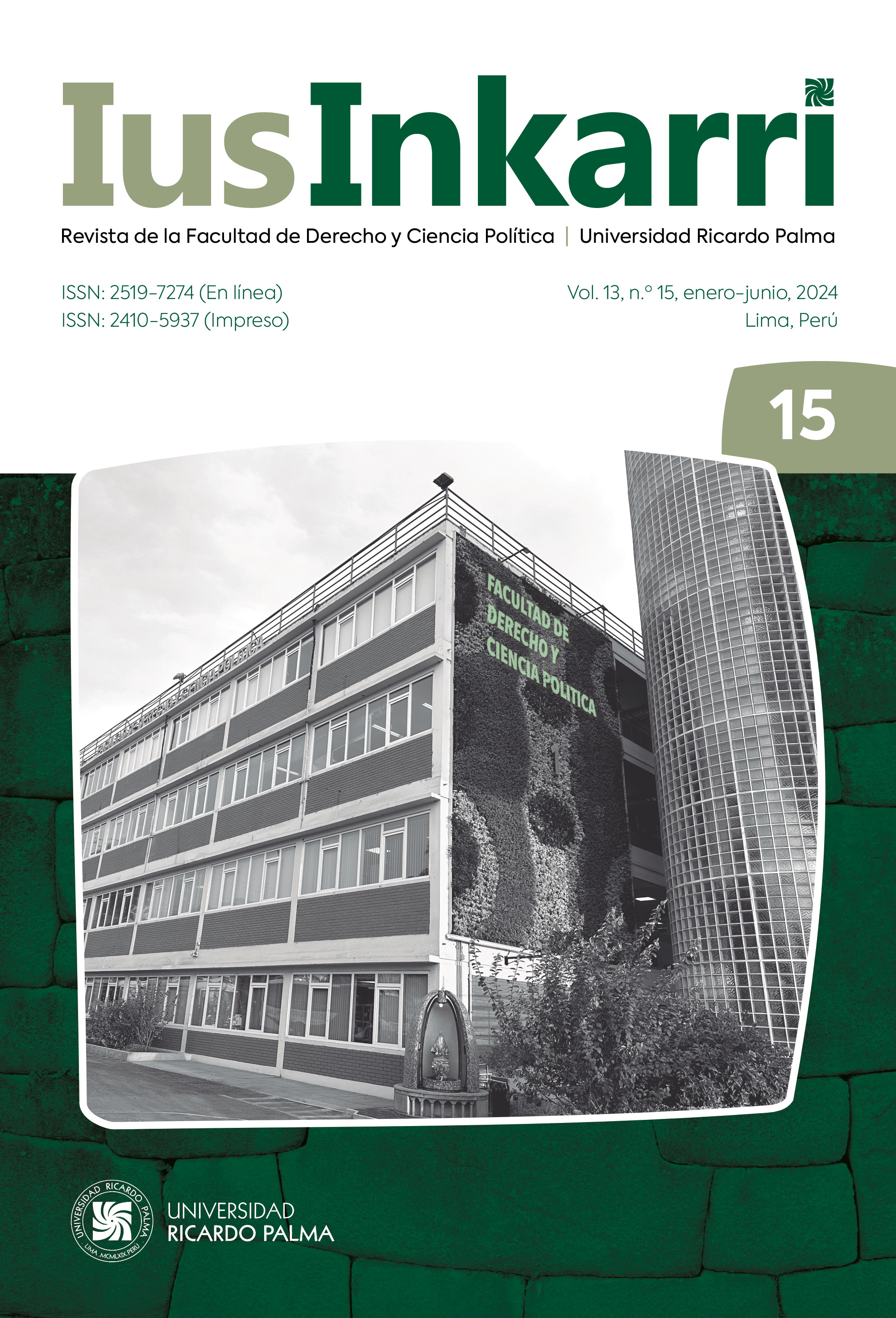Emerging artificial intelligence (AI), risk to human rights?
DOI:
https://doi.org/10.59885/iusinkarri.2024.v13n15.07Keywords:
Human rights, digital environments, conventional artificial intelligence, emerging artificial intelligence, risks of artificial intelligence, ethics and artificial intelligenceAbstract
Artificial Intelligence (AI) poses diverse challenges for human rights at the level of digital environments. Along with the inexorable advance of these rights, several risks arise – discrimination, replacement of human labor, forms of impact on human creativity, etc. – that must be faced through public policies that emphasize the promotion of ethical principles in the development of AI. These principles represent a point of balance between AI and human rights.
Downloads
References
Cook. T. (2017, 22 de junio). Aprender a codificar debería ser obligatorio para cualquier alumno, como la lengua [Entrevista] (T. Woods, trad.). MIT Technology Review. https://www.technologyreview.es/s/7966/aprender-codificar-deberia-ser-obligatorio-para-cualquier-alumno-como-la-lengua
Corvalán, J. (2019). Prometea. Inteligencia artificial para transformar organizaciones públicas. Editorial Astrea; Universidad del Rosario; Derecho para Innovar; Institut du Monde et du Développement pour la Bonne Gouvernance Publique (Imodev). https://ialab.com.ar/wp-content/uploads/2023/03/Libro-Prometea.pdf
Ferrajoli, L. (2013). Poderes salvajes. La crisis de la democracia constitucional. Prólogo y traducción de Perfecto Andrés Ibáñez. Minima Trotta. https://www.derechopenalenlared.com/libros/ferrajoli%20-poderes-salvajes-derecho-penal-en-la-red.pdf
Gascón, A. (2020). Derechos humanos e inteligencia artificial. En A. Pérez, G. Teruel, E. Raffiotta, & M. P. Iadicicco (dirs.), S. Romboli (coord.), Setenta años de Constitución italiana y cuarenta años de Constitución española. Retos en el siglo xxi (vol. v, pp. 335-350). Centro de Estudios Políticos y Constitucionales. https://www.boe.es/biblioteca_juridica/abrir_pdf.php?id=PUB-PB-2020-108_5
López, R. (2024). La inteligencia artificial y las artes. Hacia una creatividad computacional. BBVA OpenMind. https://www.bbvaopenmind.com/wp-content/uploads/2017/01/BBVA-OpenMind-La-inteligencia-artificial-y-las-artes-Hacia-una-creatividad-computacional-Ramon-Lopez-de-Mantaras.pdf
Lukac, M. (2013). Imaginación y ficciones en el proyecto político hobbesiano. Límite. Revista Interdisciplinaria de Filosofía y Psicología, 8(28), 15-22.
Miani, J. (2024, 21 de enero). La IA afectaría al 60 % de empleos de las economías avanzadas. El Comercio, 10.
McCarthy, J. (s. f.). What is AI?/Basic Questions. Stanford University. http://jmc.stanford.edu/artificial-intelligence/what-is-ai/index.html
Saavedra, V., & Upegui, J. C. (2021). Colombia. PretorIA y la automatización del procesamiento de causas de derechos humanos. DeJusticia; Derechos Digitales América Latina. https://www.dejusticia.org/wp-content/uploads/2021/04/CPC_informe_Colombia.pdf
Vargas Llosa, M. (2012). La civilización del espectáculo. Alfaguara.
Villas, S. (2012). La primera Revolución Industrial. Boletín de la Academia Malagueña de Ciencias, (14), 43-50.
Downloads
Published
How to Cite
Issue
Section
License
Copyright (c) 2024 Edwin Figueroa Gutarra

This work is licensed under a Creative Commons Attribution 4.0 International License.













